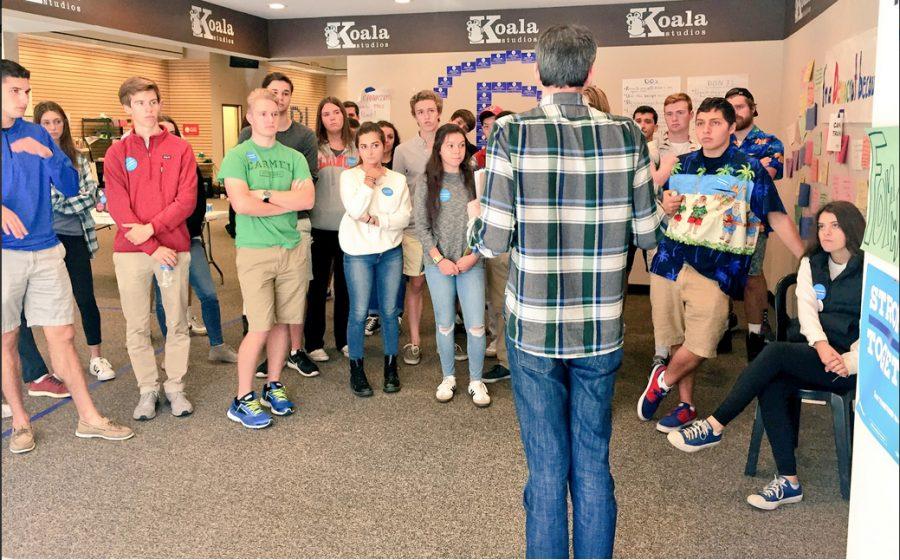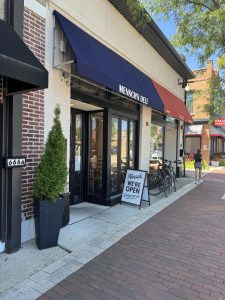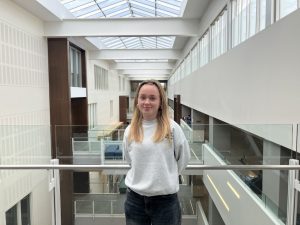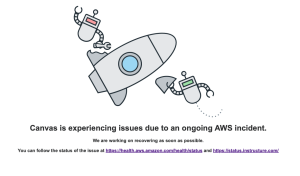Poli Sci classes increase engagement before election
Classes focus on election process through action and discussion
November 3, 2016
With the election on the horizon, the political science class offered seniors chances for involvement in local campaigns through action and education.
AP Political Science used to just be for students looking to be future politicians. The upcoming election, many seniors have taken the course for an individualized understanding of politics.
Andrew Zilka, a political science teacher, acknowledges the predetermined political beliefs of students.
“One thing we talk about is political socialization or how your views are developed. The number one thing driving this is your family,” he said. “I enlighten students through our discussions.”
The election makes the class more interactive for many students. Senior Carly Duris took Poli Sci to get educated on government as a first year voter.
“The whole class is so much more interesting since I can vote this year,” she said. “Everything we read is relevant to me. Sometimes, during debates, candidates will discuss cases and legislation that we had learned about in class that day.”
But the class doesn’t stop with daily discussions of the election. The class has recently begun a service project that goes to adviseries to inform students on the importance of voting and give brief overviews of politicians and their policies.
Senior Kelly Keenan loves the opportunity of informing her peers. “We’ve had a few opportunities to learn about each candidate’s campaign specifically,” she said. “We just began our recent voting project in which we go around and present to advisories about the different candidates for all the federal and state elections to inform students who may or may not be voting.”
This is only one of the service projects that Political Science has implemented. Last week, for the first time, classes went to Waukesha, Wisconsin to campaign locally.
“I think the field trip gave real world experience that reflects what it’s like to participate in politics, more than just voting,” Zilka said. “Students were able to see people who dedicated their entire lives and careers to the campaigns, which is especially interesting for the many students interested in politics.”
Senior Niko Gjaja recognized the impact of the field trip. “The election is much more of a local effort than people think,” he said. “You get to see what people are doing at the local level and further, as a national effort. I have a deeper appreciation for just how much effort goes into campaigns that isn’t acknowledged or seen.”
The field trip also addressed ways for ineligible voters to get involved in the election. Zilka addresses the multiple ways to participate and make a difference.
“We stress that even if students can’t vote, there’s a lot they can do like campaigning, talking to parents, and going door to door. Our hope is that they remain politically involved even if they can’t vote,” Zilka said.
For Keenan, who can’t vote in the upcoming election, the class still remains interesting.
“Not being able to vote doesn’t change my perception of the class because I know who I would vote for if I could vote. We are all still very active in class discussions about candidates and the election,” Keenan said.
While most discussions are balanced between republican and democrat perspectives, some right-leaning students hesitate to share their views.
Senior Louis Shaw said, “My teacher does a really good job of explaining both sides without bias. Regardless of the teacher’s attitude, there is a hesitancy for students who support Trump to share their views in discussion.”
Duris agrees that the occasional right-wing comment can receive backlash. “The class can feel overwhelmingly democratic at times. It can be scary to share a more right leaning opinion during discussion,” Duris said. “But it is really interesting to see people so passionate about liberal ideals, it’s definitely changed the way I look at government.”
But the class maintains support of all points of views. Students all agree that they’d be at a loss with the election if they hadn’t taken the class.
“The class does a great job of exploring perspectives that wouldn’t be explored,” Shaw said. “If you didn’t take the class and partake in discussions, you wouldn’t be able to digest all of the election.”











































